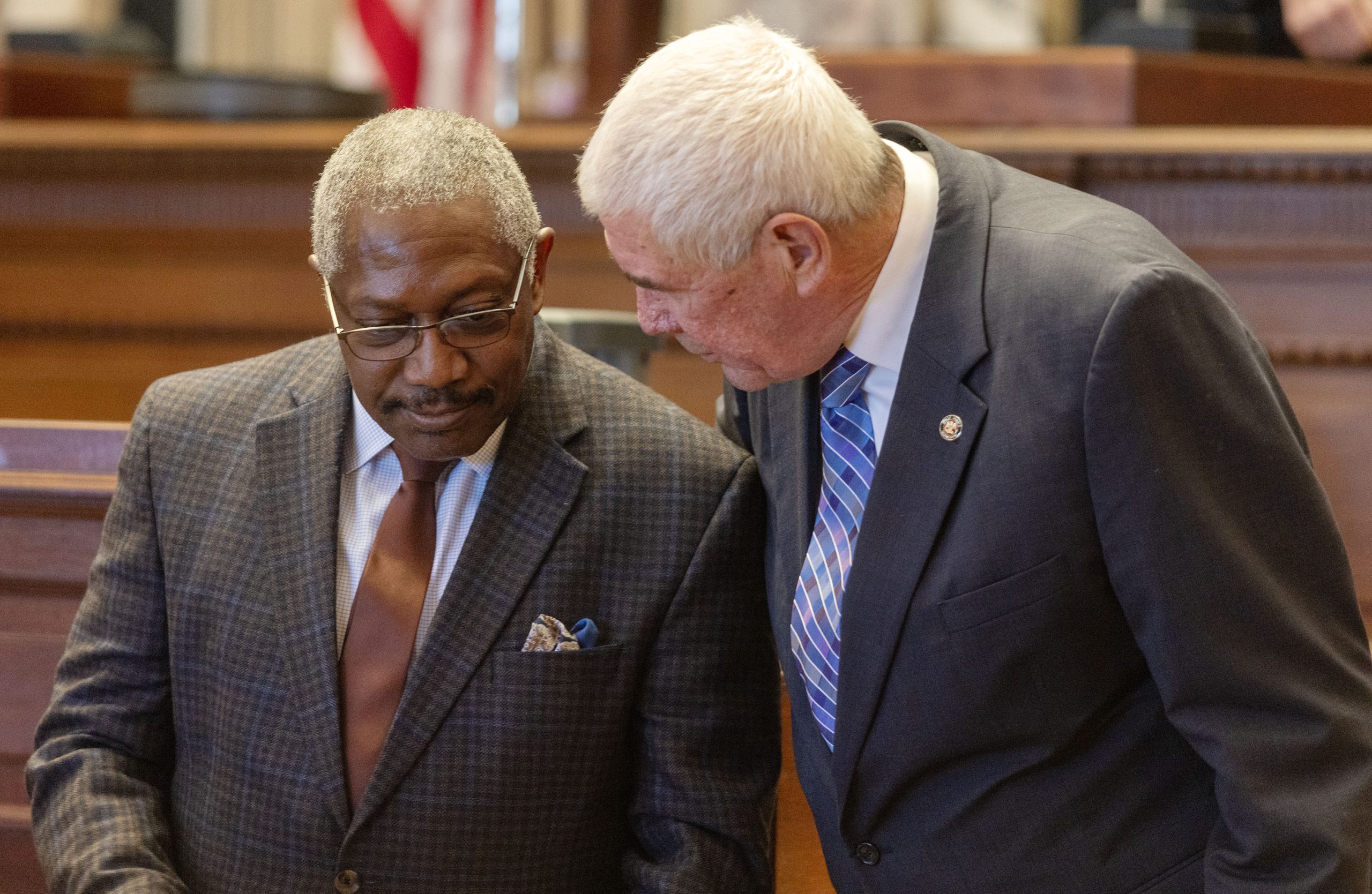An austere version of Medicaid expansion, which for more than a decade has been blocked by legislative leaders, passed the Senate on Thursday 36-16 – a veto-proof majority – with significant changes to the original bill and now heads back to the House for consideration.
House Bill 1725, with the Senate’s strike-all amendment, would increase Medicaid eligibility to those making up to 99% of the federal poverty level, about $15,000 annually for an individual, and would be entirely contingent on the federal government approving a work requirement of 120 hours a month.
That’s significantly different from the version of the bill that passed the House, which increased eligibility to those making up to 138% of the federal poverty level, about $20,000 annually for an individual, and would expand Medicaid regardless of whether or not the work requirement was approved.
Senate Medicaid Chairman Kevin Blackwell, R-Southaven, called the strike-all a more “conservative, responsible” option and described it a “hand up, not a handout.” The Senate plan turns down roughly $1 billion federal dollars a year since it doesn’t qualify as “expansion” according to the Affordable Care Act.
Republican Lt. Gov. Delbert Hosemann, who oversees the Senate, said that covering more low-income Mississippians under Medicaid would improve the state’s dismal labor participation rate – the lowest in the country.
“If we as a society, as a state, believe we should have individuals who are working, stay in the workforce, pick up our labor force participation rate, then we need to do what Sen. Blackwell and the Senate did today.”
Senate Democrats introduced several amendments, which Republicans, who hold a majority in the chamber, successfully opposed. The amendments called for: increasing the income eligibility threshold, changing the work requirement from 120 hours a month to 80 hours a month, and lowering a recertification requirement from four times a year to twice a year.
The Democratic senators strongly criticized the Senate plan to reporters after it passed but voted in favor of it to keep the bill alive – in hopes that the plan will improve later during House and Senate haggling.
“This bill was not perfect,” Senate Minority Leader Derrick Simmons said. “We would love to see more individuals covered. We would love not to have any hurdles or restrictions on additional access to health care coverage. But we did not want to lose an opportunity to keep this bill alive as we work through this process.”
Sen. Joey Fillingane, R-Sumrall, also attempted to amend the bill by removing two of the exemptions to the work requirement – for primary caregivers of children under six years old and those diagnosed by a doctor to have a disability – and requiring co-payments for individuals fulfilling the work requirement. A few hardline conservatives supported his efforts, but both amendments were ultimately shot down by senators.
Sixteen senators voted ‘No’ on the plan: Jason Barrett, R-Brookhaven; Andy Berry, R-Magee; Jenifer Branning, R-Philadelphia; Lydia Chassaniol, R-Winona; Kathy Chism, R-New Albany; Joey Fillingane, R-Sumrall; Angela Burks Hill, R-Picayune; Chris Johnson, R-Hattiesburg; Tyler McCaughn, R-Newton; Michael McLendon, R-Hernando; Rita Potts Parks, R-Corinth; Brian Rhodes, R-Pelahatchie; Joseph Seymour, R-Vancleave; Daniel Sparks, R-Belmont; Ben Suber, R-Bruce; Neil Whaley, R-Potts Camp.
House Medicaid Chair Missy McGee, R-Hattiesburg, told Mississippi Today that she does not intend to agree with the Senate’s amendment and plans to hammer out a compromise in a conference committee.
“I’m happy the Senate passed a bill,” McGee said.
Though the Senate’s plan has stricter eligibility requirements than the House version, Republican Gov. Tate Reeves, a longtime opponent of expansion, privately told senators at the Governor’s Mansion on Tuesday that he would veto the bill if it reached his desk.
If the second-term governor does veto the bill, a two-thirds majority of lawmakers in both legislative chambers would need to join together to successfully override him and pass the measure into law. Both chambers passed their versions with veto-proof majorities.
Hosemann did not directly answer whether he believes there is an appetite in the GOP-controlled Senate to override a potential veto, but he said the work requirement in the Senate bill is a “good first step” toward addressing Reeves’ concerns about the bill.
“We’re going to get with our House counterparts here and maybe that step forward is sufficient for the governor,” Hosemann said. “I don’t think there was anybody here that didn’t feel the weight of having people who are working have a catastrophic event and not get back into the workforce.”
House members have until April 19 to either agree with the Senate plan or to work on a compromise in a conference committee.

